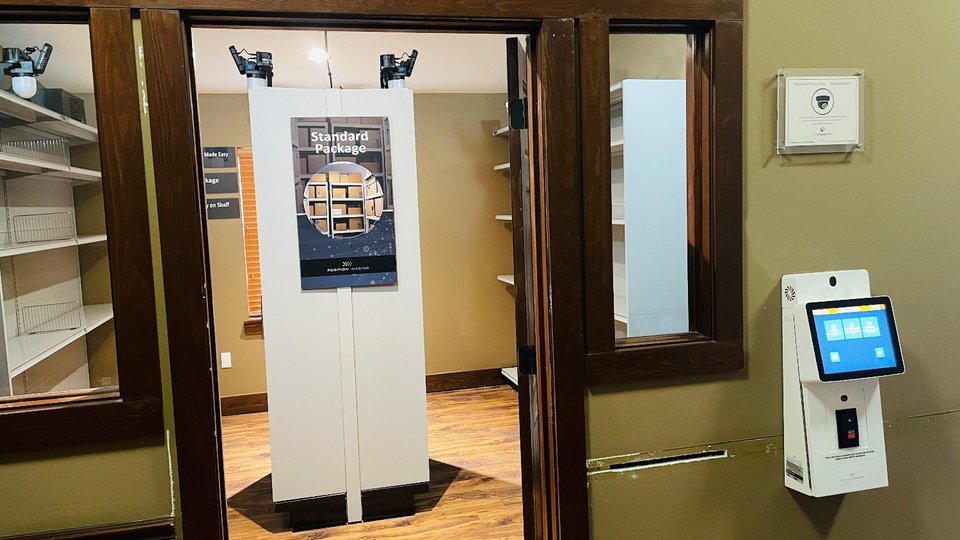Commentary
How the multifamily industry relies on property management tech
With more people working from home, multifamily property managers must elevate resident services. Antiquated package management won't cut it.

May 1, 2023 by Ned Hill
Twenty-twenty-two brought multiple challenges to the multifamily housing industry, the primary among them being employee staffing. The pandemic ushered in an era of management acceptance of working from home.
Although working from home is not new, many companies embrace it as a typical corporate structure — except for the multifamily market. The multifamily work environment is a hands-on, high personal-touch job and is not conducive to a video conferencing schedule. Because of this, many organizations in this industry find it difficult to find and retain staff.
In addition, property management is time-consuming and prone to high burnout rates. According to the National Multifamily Housing Council, the multifamily industry's average turnover rate is 32.7%, higher than the national average. This trend continues through 2023, with more residents gravitating toward home office positions.
This high turnover rate and difficulty in finding and retaining staff will continue to bring a significant financial burden for multifamily housing organizations, as it can lead to increased recruitment and training costs.
It can also negatively impact the resident experience, as staff turnover can lead to a lack of continuity and expertise in providing services and addressing issues. Therefore, property managers will be turning to new strategies to attract and retain staff and to improve their work-life balance, such as offering flexible working hours, remote work options and other benefits.
Property managers turn to prop tech
According to the National Multifamily Housing Council, in 2022, 62% of renters telecommuted at least twice a month. In addition, Pew Research Center says that as of February 2022, 59% of people worked full-time from home. These stats clearly illustrate that working remotely is not a fad — instead, it's a popular option that's here to stay.
As a result, 2023 will realize an increase in full-time, work-from-home employees who demand their rental property's technology keep pace with their new lifestyle. However, this trend brings on a problem for property owners and managers, i.e., how to elevate services with fewer staff members, to meet the needs of residents who are spending more time at home.
Working from home means more items delivered. In 2023, residents who work remotely will increase the volume of online and standard purchases and diversify other items bought.
For example, fewer residents pass Walmart, Target, grocery stores and dry cleaners on their way to and from work. Because of this, they will pivot to more large-scale items (furniture, TVs, beds), perishable food and dry-cleaned garments delivered to their residences. This added package delivery volume will pose a significant problem for an industry already short on staff. Innovative prop-tech will be the solution to this conundrum.
This year, property managers will need to invest in new technologies and systems to manage and track packages effectively to keep up with the increased deliveries. This will include implementing automated package tracking systems, using drones for deliveries, and providing residents with real-time updates on the status of their packages.
Property managers may also need to increase the size of their existing intelligent package rooms to accommodate the increased volume of deliveries.
Furthermore, as more residents work from home and spend more time in their rental properties, property managers will need to consider how they can enhance the overall resident experience and provide additional services that cater to their new lifestyle. This may include providing more amenities such as shared workspaces and flexible lease options.
Overall, the multifamily housing industry will need to adapt and evolve to meet the changing needs of residents working from home. Innovative prop-tech solutions will play a key role in helping property managers improve their operations and provide better services while reducing costs and increasing efficiency.
Antiquated package management won't cut It
Property owners previously selected a locker system to store incoming packages. However, the residents' lifestyle changes make these lockers inefficient. Lockers cannot handle large volumes of packages or store items such as furniture or TVs — and lockers were certainly not designed to keep perishable food items fresh.
In addition, the mechanical structure of lockers has a limited life cycle due to wear and tear. As a result, 2023 will see a large-scale shift in multifamily housing, away from legacy lockers and toward intelligent package rooms.
More intelligent packages rooms deployed
Intelligent package rooms contain large open shelves behind locked doors. When a package of any size is delivered, the courier enters a code to unlock the room, scans the barcode of each package, and places it on a shelf or other area designated for huge items, perishable food or dry cleaning.
Scanning the barcode instantly alerts the appropriate resident that they have a package waiting for them. They receive a QR code via text or email to enter the intelligent package room, with lights and audio prompts guiding them to the package. The value of this system is that it conforms to the residents' new lifestyle while requiring no property staff or management intervention.
Prop tech meets Wall Street
Real estate organizations such as construction companies and multifamily housing continue to focus on adopting new technologies to improve the resident experience and provide more self-service options.
For example, the last widespread technology for residents was Wi-Fi.
Today, the multifamily sector is embracing a technology stack that ranges from property management systems, renter portals, listing platforms, video entry systems and intelligent package rooms. This new, high-tech property portfolio has caught Wall Street's attention and will continue to be of interest throughout 2023.
Case-in-point: Alfred raises $125 million to acquire RKW Residential, a fast-growing property management company in the U.S. Alfred sells residential management software and serves over 143,000 units across 44 markets in the U.S. and Canada. RKW owns 30,000 single-family and multifamily rentals in fast-growing cities, including Miami, Charlotte and Atlanta.
The unique aspect of this deal is that Alfred was able to raise $125 million from Wall Street investors to acquire 30,000 new customers for their property management software. In 2023, we expect many more Wall Street attention and acquisitions driven by the desire to implement innovative prop-tech.
This trend of Wall Street investing in prop-tech companies, and multifamily housing organizations adopting new technologies, is likely to continue in 2023 as the industry looks for ways to improve efficiency and enhance the resident experience.
This could include virtual and augmented reality in property tours, smart home technology in units, and more robust resident portals and mobile apps. These technological advances will bring more innovation in the multifamily housing industry, with tech companies looking for ways to streamline operations and improve customer service.
With Wall Street investors looking to capitalize on this growing trend, the multifamily housing industry will continue to evolve and adapt to meet the changing needs of residents and market demands.
 ChatGPT
ChatGPT Grok
Grok Perplexity
Perplexity Claude
Claude










